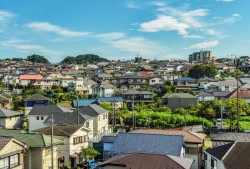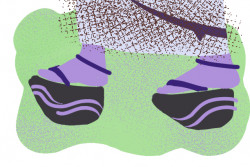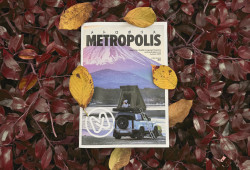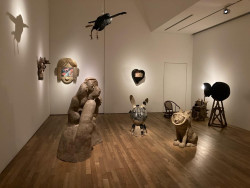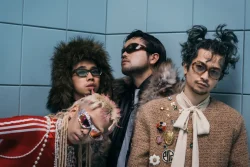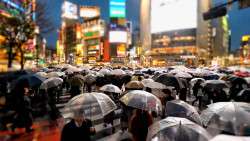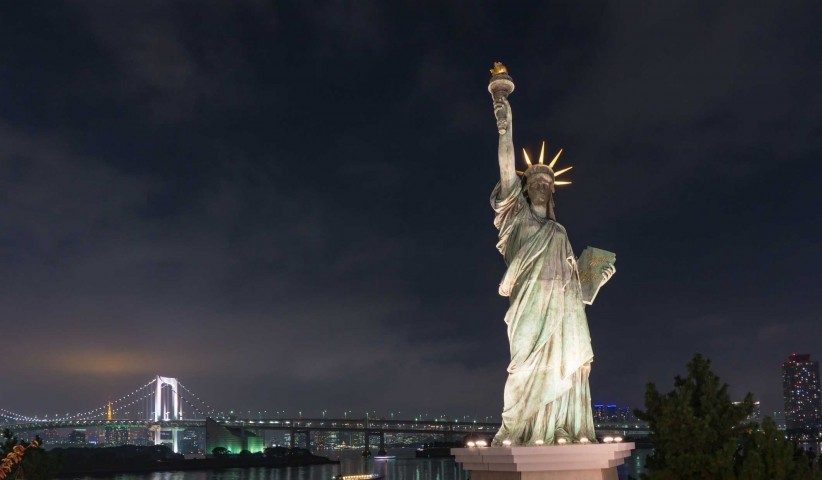
In the film Tokyo Fiancée — based on Amélie Nothomb’s semi-autobiographical novel — a young Belgian Japanophile settles down in Tokyo only to quickly fall in love with her Japanese French-language student, who is a member of a secret Francophile society. That Japan’s love affair with France is not just artistic license becomes apparent the moment you set foot in Japan’s capital.
The city’s landmark Tokyo Tower is a younger and flashier sister of the Eiffel Tower, and Odaiba’s Statue of Liberty is a replica of the statue in Paris, rather than her big sister in New York. Every other bakery in town is “French,” which is to say all the names are in French, and most products resemble their French originals (though occasionally you may find red bean filling instead of chocolate in your croissant) but the staff will usually not speak a word of the language of Molière. Restaurant-wise, Tokyo offers some of the finest French dining outside of Paris. And you can choose between anything from Michelin-starred restaurants of Joël Robuchon or Alain Ducasse to cosy bistro-style eateries whose “French” names may sometimes make little sense to Francophones. The upscale shopping districts of Ginza and Omotesando rival the Champs Élysées for concentration of French luxury brands. And art enthusiasts are also spoilt for choice: last year alone Tokyo saw exhibitions featuring the works of Renoir, Gaugin, Les Nabis group as well as the masterpieces of Centre Pompidou, to name but a few. French expats marvel at how much they can learn about their own culture while living 10,000 kilometers from home.
In Japan, old Europe, and in particular la belle France, are still considered by many to be the essence of high culture, beauty and good taste. French is the fourth most studied foreign language in Japanese schools, after English, Chinese and Korean. “For the Japanese, foreign literature is synonymous with French literature,” explain the staff at the French bookstore Omeisha in Tokyo’s “French quarter” in Iidabashi. The bookshop — in operation since 1947 — is visited more often by Japanese clientele than by the 8,000-plus French expats living in Tokyo. The allure of the French language is confirmed by Father Pierre Charignon, the chaplain of the Francophone Catholic Community of Tokyo. One of the Japanese members of the community explained to him that “God talks to [her] in French—the language that is logical, clear and beautiful.”
For full French-immersion, some Japanese parents even choose to put their kids in French schools. Out of the 1200 students enrolled in Lycée Français International de Tokyo, 40% come from mixed Franco-Japanese families while a further 10% have two Japanese parents. Similar proportions are observed by Florine Lamoity, the director of the French-speaking kindergarten Au pays des Sakuras. “There’s a true fascination with French language and culture among Japanese parents, which makes me even more proud to act as an ambassador of my country,” declares Lamoity.
Inevitably, the Japanese vision of France is an idealization fed by popular culture. In the words of Eriko Nakamura, a former NHK presenter married to a Frenchman: “The Japanese see Paris as the City of Light, the most beautiful city in the world, the capital of refinement and romance. A mix of Chanel N°5 commercials, Amélie Poulain and black and white photos of Robert Doisneau.” The reality — as Nakamura details in her hilarious book “Nââânde” — may be less rosy: rude taxi drivers, dirty public toilets, constant strikes. As of 2014, France remained one of the most popular destinations for Japanese tourists, yet for some Japanese visiting or settling down in France, the culture shock may be so intense that it results in a form of nervous breakdown dubbed “Paris syndrome.”
For those anxious about confronting their dreams with reality, Japan’s capital makes it possible to live an almost perfectly French lifestyle. If you can afford it, that is.

